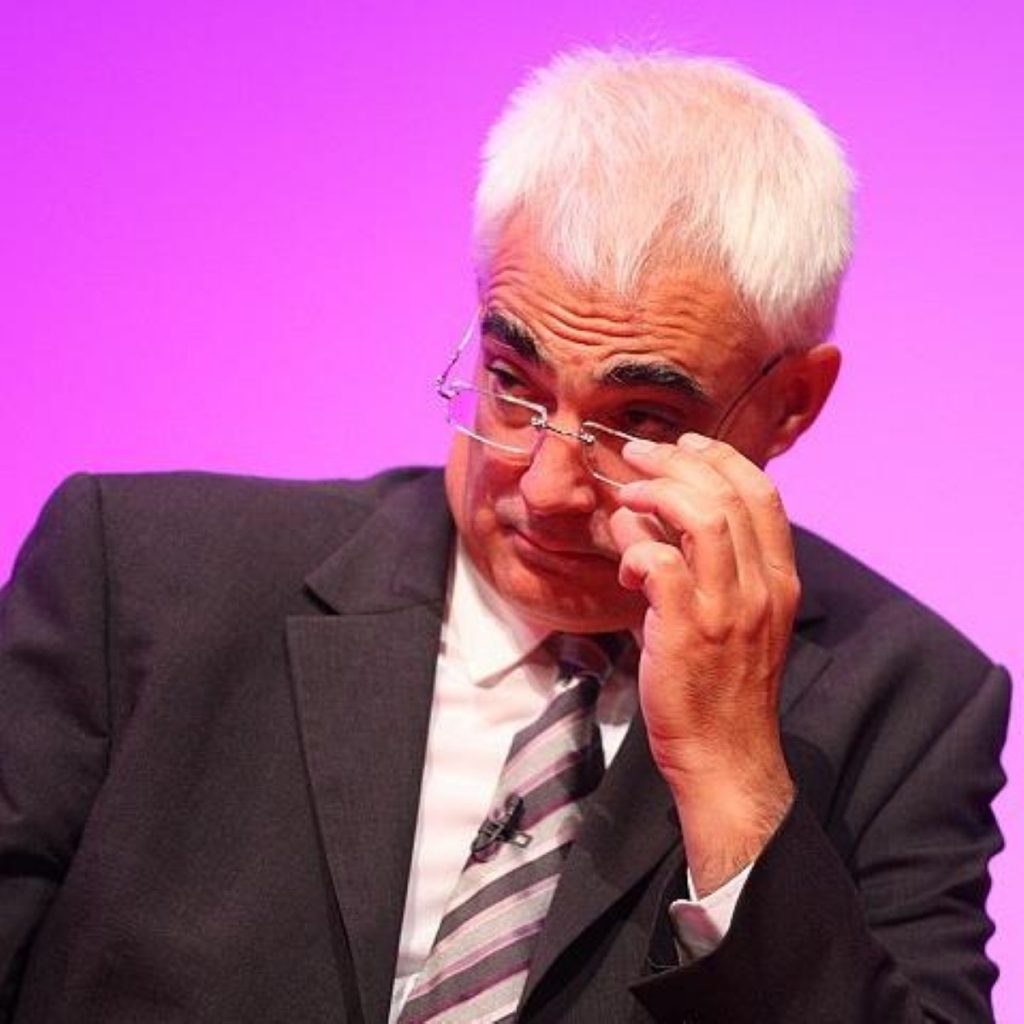Darling: We won’t nationalise RBS
By politics.co.uk staff
The Royal Bank of Scotland (RBS) will not be nationalised despite plummeting share prices, chancellor Alistair Darling has confirmed.
At 3:20PM GMT, the RBS share price was down 66.6 per cent to 11.60p. In 2007 the share price was over £7.
Despite the further drop in the company’s share price on the news the government was to take a 70 per cent stake in the lender, the government is not planning to take the lender into public hands.


“We have a clear view that British banks are best managed and owned commercially and not by the government. That remains our position,” the chancellor told parliament today.
“I am taking action to strengthen [Royal Bank of Scotland’s] position.”
Today RBS announced its loss could stand at £28 billion – as a result of subprime losses from the US and the purchase of Dutch bank ABM Amro.
In response, the government has switched its preference stocks to ordinary shares which do not demand a high premium to be paid.
RBS has now agreed to increase lending in return for the government help.
Shadow chancellor George Osborne said: “The first bailout has failed.
“[The chancellor] should have been straighter – this is not a long-thought out second phase.”
He said on RBS the government had now lost £17 billion on the value of the shares it bought and the whole bank is now worth less than its £5 billion preference stake.
“Boom has turned to bust and ultimately the buck stops with them,” Mr Osborne said.
He added: “The PM has finally forced to face the truth – he hasn’t saved the world, the economy or the British banks.”
He went on to hit out at the government for not ensuring the first bailout would maintain lending.
Vince Cable, Liberal Democrat economics spokesman, said: “The government resembles someone giving the kiss of life to a corpse.
“What happened to the original £37 billion? Where did the money go? Instead of lending the money, the banks held that money in reserve.”
He added: “This is nationalisation in all but name.”
He claimed the government was buying one of the largest banks in the world with a balance book bigger than the UK economy.
Mr Darling said RBS lending did increase after the first bailout.
Mr Cable also hit out at the government’s plans to insure assets.
Former Tory leader Ian Duncan Smith blamed the government for taking a major share in RBS and not knowing about the losses.
The chancellor responded it was only possible for the government to understand what was going on within the bank once the new management was in place.
“Many people are justifiable angry about what has happened,” he said.
Mr Darling hit out against the demands from Conservative MP Adam Afriyie that the government should have carried out due diligence.
“We had to act immediately and decisively. for reasons most people understand,” the chancellor said.

